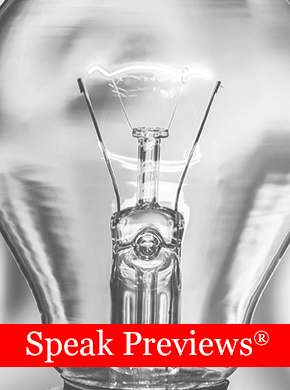They come up often in conversation, don't they, those questions that neither seek nor require an answer. "Who wants ice cream?" calls a father to his children as they pound across a boardwalk at the shore. Of course they all do, as their joyful screams attest; he has already decided to buy them some and even as he speaks is steering them toward an ice cream shop.
His is a rhetorical question, one asked for effect, one whose answer is implicit by the very asking. So although he knows the answer, his question provides his listeners with a valuable piece of information: they are going to get ice cream.
He could have just said that, but he's a father who likes a good figure of speech.
In essence, a rhetorical question is a statement structured as a question.
TO GRAB ATTENTION & ANNOUNCE INTENTION
A speaker may, as did the father, use a rhetorical question to call attention to something—in his case, an action. His question created an effect, to be sure. But it also announced his intention.
"How many times have you used the word 'awesome' today?" comedian and designer Jill Shargaa begins a TED talk. Neither expecting nor seeking an answer, she uses the question to segue into her purpose, her intention, her message. From Shargaa's first words, the audience begins to think of the word "awesome," how they use it and hear it used.
Juliet does much the same when she asks, "What's in a name?" in Shakespeare's play. Her rhetorical question alerts listeners to the significance of names, prepares them for the path of thought she then follows.
Rhetorical questions often seek to establish agreement, to show that speaker and listener share values or beliefs, aims or destinies, concerns or worries. They can be used to strengthen the speaker's credibility and to heighten an emotional appeal.
Thus in his inaugural address, President John F. Kennedy asked, "Can we forge against these enemies a grand and global alliance, North and South, East and West, that can assure a more fruitful life for all mankind? Will you join in that historic effort?"
Earlier in American history, Frederick Douglass posed this series of questions: "Must I argue the wrongfulness of slavery? Is that a question for republicans? Is it to be settled by the rules of logic and argumentation, as a matter beset with great difficulty, involving a doubtful application of the principle of justice, hard to understand?"
Neither speaker sought a reply. Neither needed one.
TO PROVIDE & SHAPE ANSWERS
"Intelligence—what is it?" asks physicist and computer scientist Alex Wissner-Gross, thus illustrating a special sort of rhetorical question, the hypophora. In this type, the speaker asks a question that he or she then answers. The hypophora does elicit audience attention and announce an intention, but it is answered by the person who posed it.
Thus it offers a speaker a chance to reframe (or sidestep) a question asked by, perhaps, an interviewer. "Do I wish I had handled things differently?" ask many in the public eye who have been caught doing something that threatens to tarnish their reputation. "Do I wish I had handled things differently? Yes. I wish I had first of all …"
Not every use of hypophora is a dodge, though. It can be useful in certain meetings or forums, for instance, to emphasize a message or to create an opportunity to present information that wasn't explicitly requested. "Did Study 140G replicate the results of our three earlier studies?" a scientist might ask. "Yes. Yes, it did." Or, a committee chair might report on a fund-raiser, "Did we surpass our goal this year? We did! By 22%!"
A rhetorical question puts the audience on alert … and it's very good at what it does.



